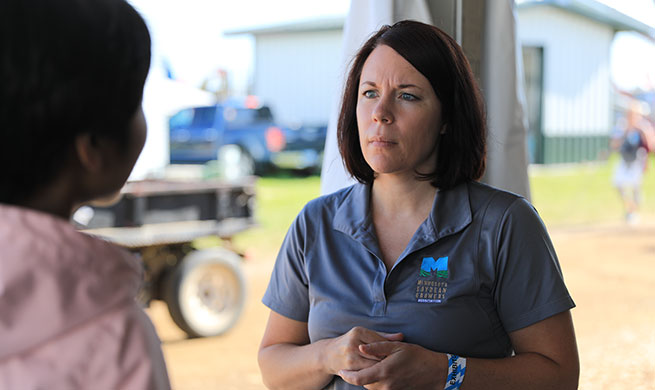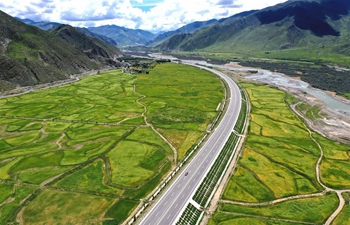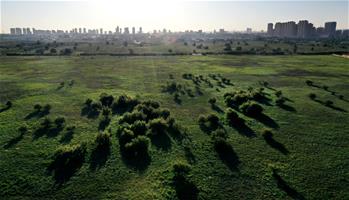NAKURU, Kenya, Aug. 19 (Xinhua) -- Ephraim Maina, a Kenyan kales farmer, sells a bundle of the green vegetables for 50 shillings (0.5 U.S. dollar) during the low supply drought season often running from November to early April.
The small-scale farmer, who is based in Nakuru County, trades the similar quantity for 0.1 dollar after the rains come and the market is flooded with plenty of supply.
"When you sell at 0.1 dollars, you are not talking about profits. You are just giving it away instead of seeing it go to waste," said Maina.
"But I would be maintaining the same profit or even make more if I had a means of adding value to it and export it to other countries like Netherlands or China," he added.
When there is a glut, he would collect the kales, process them, hoard them and sell them at a better price, especially during drought when the vegetables are scarce, posed the farmer in his 50s.
He hopes for a training on processing of kales into multiple products and a grant to buy machines to start off.
"Our government can engage Chinese experts to train Kenyan farmers in the rural areas since China has advanced technology and conducts research on food production. And through the scientists, we can access Chinese market," noted the farmer.
Sharon Cheruto, who has practiced potato farming in Nakuru County for the past four years, shares the same burden of selling the produce at a loss during high supply season.
"Brokers buy a 120 kg sack of potatoes for 8 dollars when many farmers are harvesting at the same time and they have a choice of whom to buy from. They set the price and you have no bargaining power. You'd rather sell at a loss instead of incurring a total loss," said Cheruto.
The farmer said, she is yearning for skills and information on how to boost her income through adding value to the potatoes instead of selling them raw.
"The government should make an effort to help farmers like me make good profits from our farming. We hear through the radio, government officials asking farmers to add value to their produce to earn a good income throughout the year, but how can we do that if we don't have the skills and information on how to do so?" posed Cheruto.
Experts observe that many farmers in Kenya continue to reel in poverty as they are unable to make good returns since they sell raw perishable produce.
"For instance, a farmer can harvest all the kales when there is plenty in the market and process it to sell it when the season is good instead of selling it at a throw away price," said Kennedy Sigei, an agricultural economist.
"It not just about lost income but lost inputs taking into account there is use of fertilizer, pesticides and even labor," he added.
The Kenyan government foresees boosting agricultural productivity and farmers' income through processing of farm produce for local and export market.
This aspiration is highlighted in the 2019-2029 Agricultural Sector Transformation and Growth Strategy (ASTGS) by Ministry of Agriculture, Livestock, Fisheries and Irrigation where the government outlines plans for establishing six agro-processing hubs to assist farmers in adding value to their produce.













